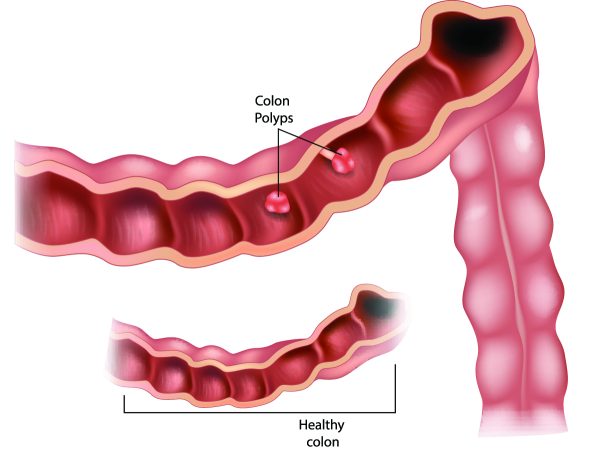
If you have never heard of colon polyps, you may be wondering how and why they form and how they are treated. Read on to find out as the team at Piedmont Colorectal Associates explains all about colon polyps.
What Are Colon Polyps?
Colon polyps are small clumps of cells that grow on the inside lining of the colon. While they are small in the early stages, they can grow larger over time. Colon polyps can appear dome shaped or look like a mushroom with a stalk. While most colon polyps are not a cause for concern, some can gradually turn into colorectal cancer if not removed.
Why Do Colon Polyps Form?
It is unclear exactly why colon polyps form. However, certain factors may indicate a greater chance of developing them such as age and a family history of colon polyps.
You should also be aware that your lifestyle choices can increase your chances of developing colon polyps. Your choice to engage in any of the following can contribute to the formation of colon polyps: smoking, a sedentary lifestyle, heavy alcohol consumption, obesity and eating a diet that is high in processed foods and red meat.
How Are Colon Polyps Treated?
In order to treat colon polyps, you must first know you have colon polyps. If you cannot see them, how are they discovered? As their name suggests, colon polyps are detected during colonoscopies.
A colonoscopy is a minimally invasive procedure that allows a physician to see the inner lining of your rectum and colon. During the procedure, the physician inserts a long, flexible tube with a camera into the anus and through the colon.
Colon polyps are treated by removal. Small colon polyps can usually be removed during the colonoscopy with special tools.
If a colon polyp is too large to be removed in the above manner, then surgery may be required. It’s important to have polyps removed to ensure that they do not develop into cancer.
Book an Appointment with Piedmont Colorectal Associates Today
If you have questions about colon polyps, schedule an appointment with the knowledgeable team at Piedmont Colorectal Associates. Call or email us today.

